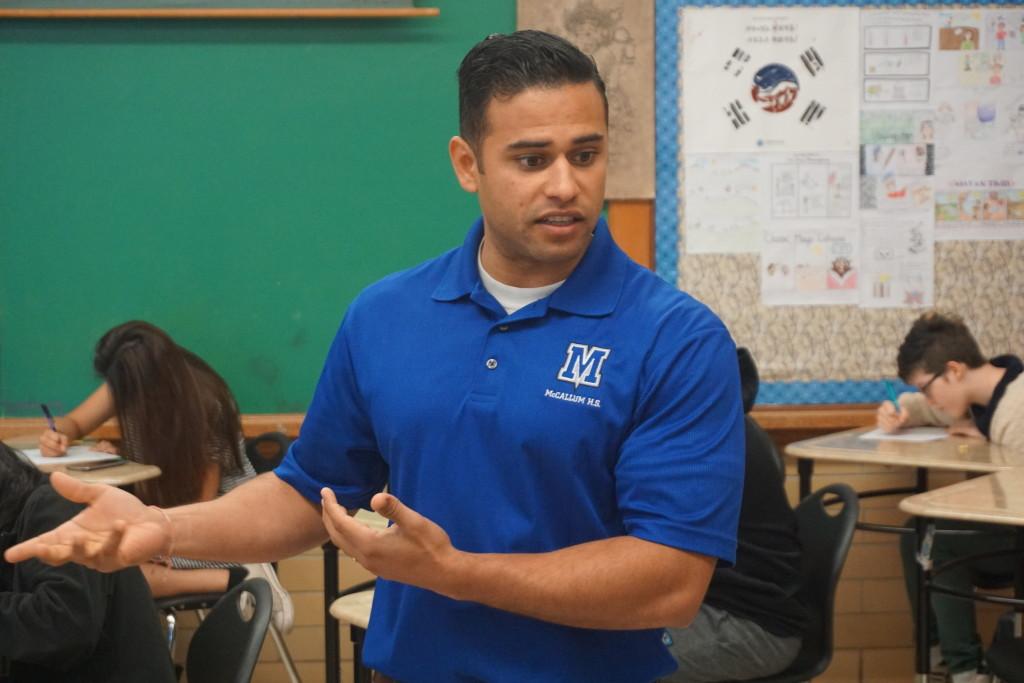
World geography teacher fights the good fight overseas and in the classroom
When considering careers, one may think that being a high school geography teacher and being a member of the U.S. military may have nothing in common. However, for one McCallum teacher, his two jobs have many unexepected similarities.
“I think that education is a lot like the military,” social studies teacher Michael Sanabria said. “Professionally, there are big parallels in terms of hierarchies: there’s administration, then teachers; in the military, there’s officers and NCOs [non-commissioned officer]. In terms of the skills, there’s a lot of carryover because. …a lot of people don’t realize what the U.S. Special Forces actually do in the military. I think there’s a notion that it’s all Call-of-Duty style direct action; that’s not the case entirely…Special Forces soldiers travel around the world, instructing other militaries. So actually becoming a teacher and being in a classroom every day has made me better at doing my job in the military, and the military makes me a better teacher because of some of the presence and confidence that you develop being a soldier.”
Sanabria is a Sergeant First Class and a Special Forces Communication Sargeant; he operates his team’s communication systems: working with satellite radios, establishing networks and setting up AM and FM radios.
Sanabria joined the military straight out of high school as a Special Forces recruit, then after two years of training, he was deployed all over the world to places like Afghanistan, Colombia and Honduras. He worked in the Army full-time for about five years and then left to go to college, paid for by the post-911 GI bill, with the intention of going into education. He continues to serve in the National Guard in addition to his teaching job at McCallum.
He asserts that he has been affected both as a person and teacher by his military experience.
“It’s certainly made me someone who has a wider perspective on many things than other folks because I’ve travelled so broadly, had to interact with people, sometimes seeing the worst of humanity, sometimes the best aspects of humanity,” Sanabria said. “In that way, I’m able to bring a more global point of view into the classroom, which obviously applies to geography. I feel like I have a lot of experiences to share and a lot of neat things hanging on my wall from all over the world.”
Sanabria says that even though the military has helped to shape him through the years and his continued participation in it is important to him, teaching is his top priority.
“I kind of treat my military career at this point like a hobby,” Sanabria said. “It’s not the main thing I focus on; it’s something that is important to me, but in the event that there’s some sort of clash between my military responsibilities and my civilian responsibilities at McCallum, if I can help it I skew towards McCallum because I consider myself a teacher more than someone in the military. That being said, sometimes the military trumps that and I have to fulfill it; that’s kind of what happened with Korea.”
This school year, Sanabria had to miss all of the first semester when he was sent on a six-month-long overseas trip to South Korea. On these overseas trips, members of the National Guard, such as Sanabria, work with the other military to teach each other useful skills or tactics; the collaboration builds trust and rapport between the military partners.
“The location was interesting, the people were real great, but it was very inconvenient being gone for six months,” Sanabria said. “[It was] stressful for my career here at McCallum because I was teaching economics and then I got moved to a different subject…you miss your wife, so it’s difficult there too, but overall [it was] not a bad experience.”
Katie Carrasco, like Sanabria a geography teacher and also the co-chair of the social studies department, says that though it was difficult to accommodate Sanabria’s absence, it was worth it in the long term.
“We found out that he was going to be deployed… [and that] there wasn’t a guarantee that he would get to go back to McCallum, but we felt like he’s such an asset to our department [and] to our campus, so we wanted to make sure we could pull whatever strings we could so that he could have a position to come back to,” Carrasco said.
During his absence, a permanent sub, Charles Mangum, took over his pre-AP World Geography, regular World Geography, and the new AP Human Geography classes. While Mangum admitted that at times it was difficult managing all the classes for an entire semester, he also praised Sanabria for being an excellent teacher.
“I knew him when he and Mr. Anderson did their student teaching here when Mr. Staples was here; they were excellent teachers and I’m just happy that Mr. Garrison employ[ed] them,” Mangum said. “Very fine, excellent young men to be teaching young students.”
Sanabria’s students, who studied under Mangum for the duration of the first semester, admit that there was an interesting transition between the two teachers.
“It was a really difficult change because Mr. Mangum, as sweet as he is, isn’t very strict and wouldn’t give us as much work; there was a lot of free time,” freshman Maryanna Tollemache said. “Then, switching to Mr. Sanabria, who is very strict about like, where you’re sitting…It’s a really big change, but I kind of like that.”
Students, despite just meeting Sanabria, report that they are impressed by his worldliness and insights.
“He’s really thoughtful, and he gives really good lectures and conversations,” freshman Sara Milliken said. “What I like is that he knows all the current events that are going on in the world, which helps, being a world geography teacher. He asks really thoughtful questions, and any time he gives a lecture I am always left thinking about what we just talked about or I have a question in my mind.”
In turn, Sanabria, who was deployed in combat to Afghanistan at the age of 20, encourages students who are curious about joining the military to discuss it with him.
“I honestly try not to talk too much about being in the military, especially with students, because I don’t want to be perceived as trying to sell anybody on being in the military,” Sanabria said. “But for those students who are interested in the military, I would invite them to come talk to me because I don’t have any agenda whether they join or not, so sometimes that might be a little safer place to go to ask advice or expectation management than talking to a recruiter.”
Though teaching is his main passion, Sanabria says that he continues to hold his military as something special and something that has completely shaped his life.
“I don’t know if it’s so much balancing the military and my Austin life as the military kind of balances me…because so much of my formative years were spent in the military, it would be a little bit weird for me if I didn’t have at least one foot in the door still,” Sanabria said. “It’d probably be difficult to separate my military experiences from who I am; it’s so much a part of who I’ve become.”


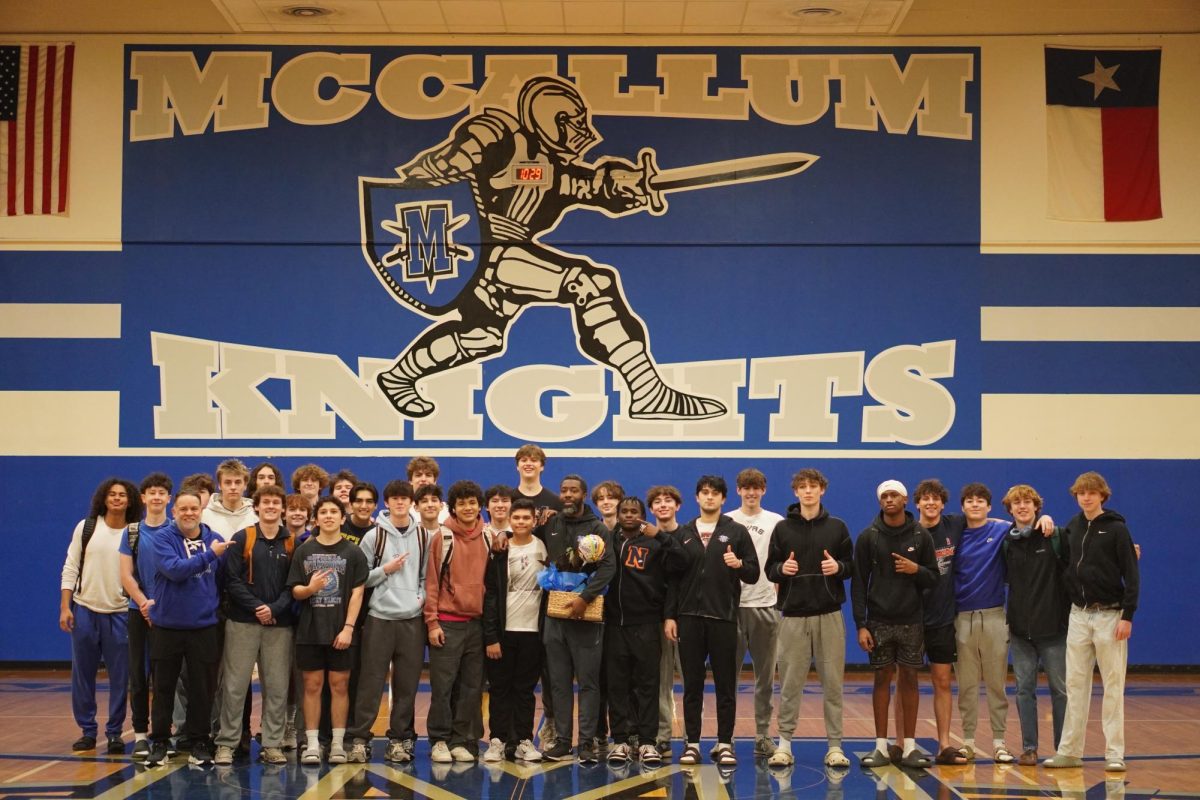
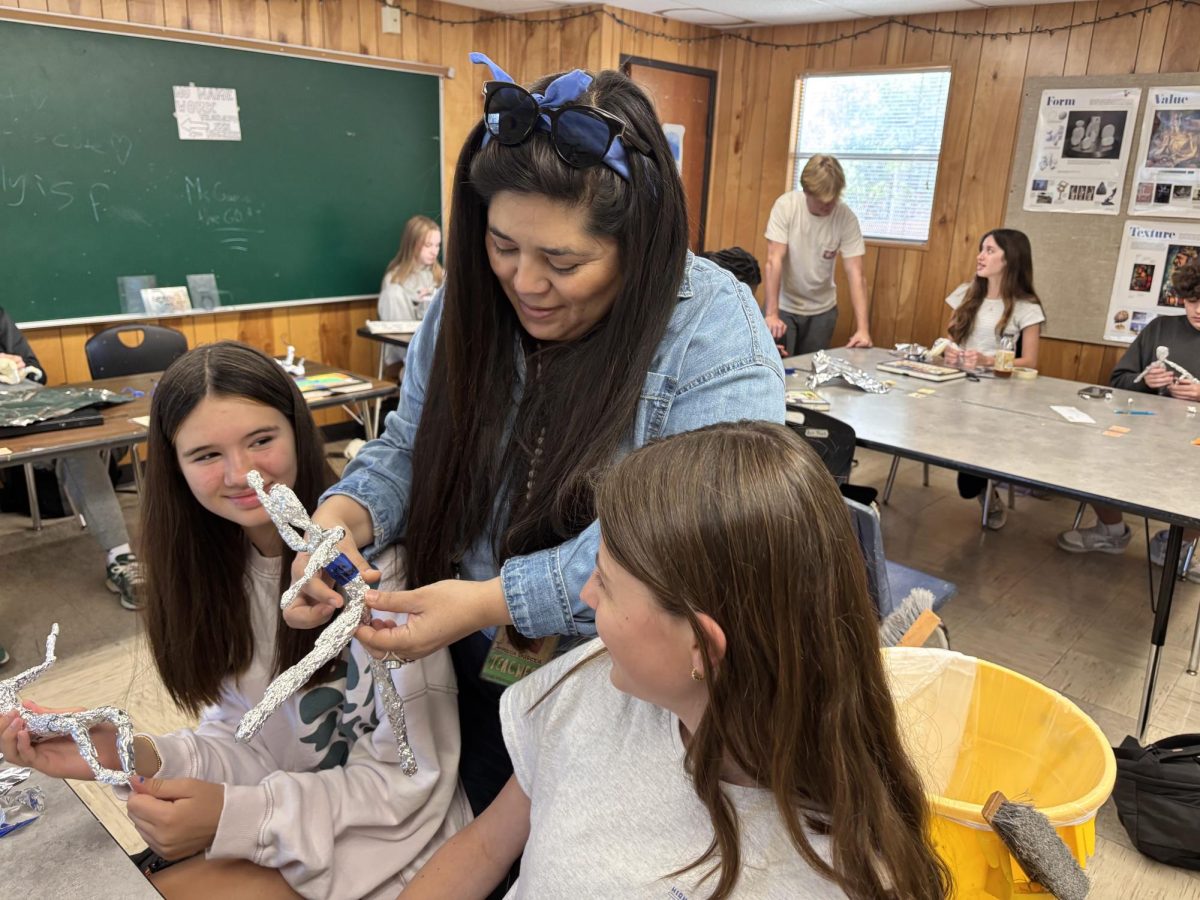
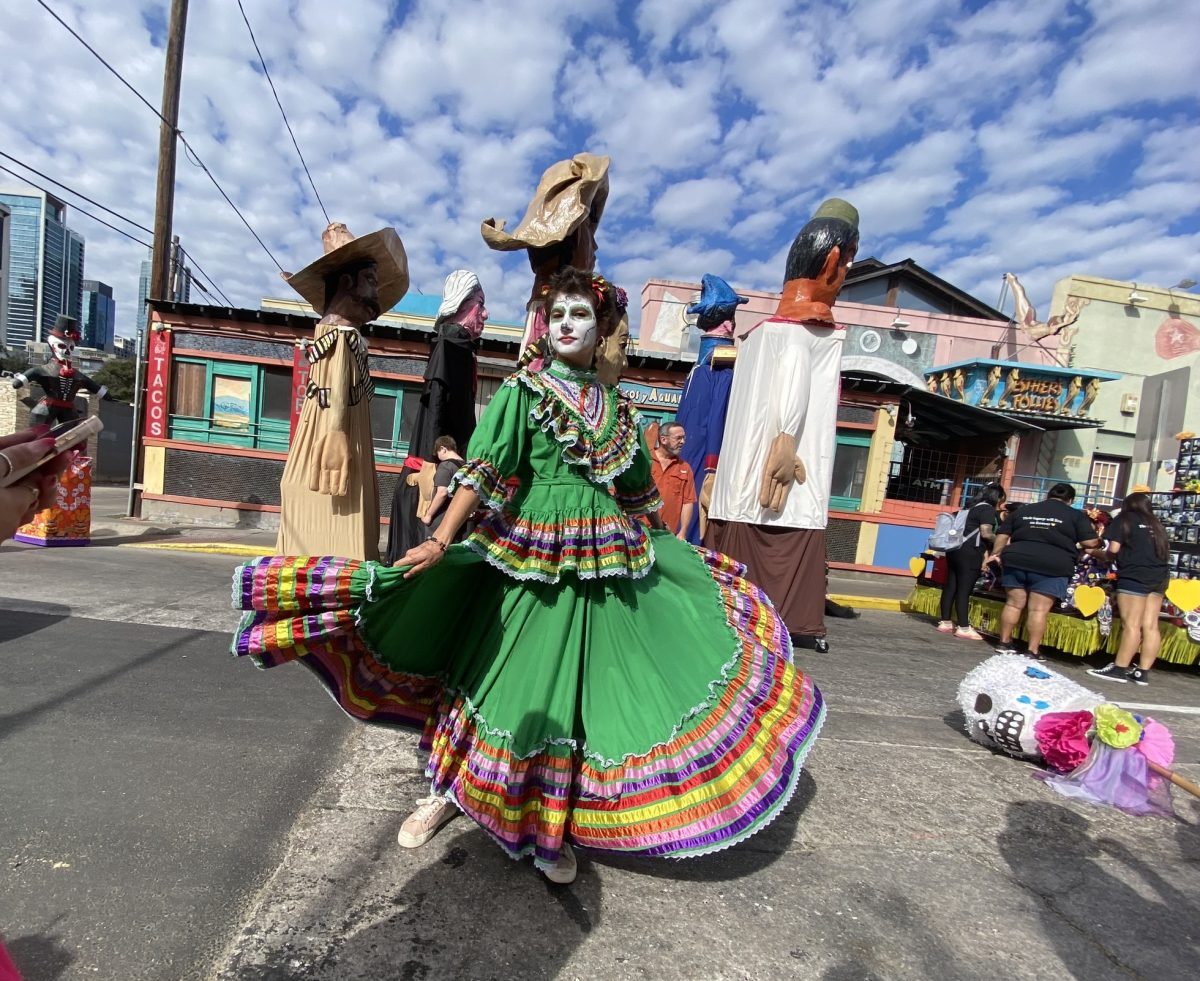
![This is Paul Pew's high school graduation photo. The 2023-2024 school year marked his 34th year of teaching. He began his career in Washington, then came to McCallum where he has taught for the past 17. At heart though, he’s really a musician. One that grew up in many different places, including Chicago and California, who took interest in teaching from a young age. His high school choir experience, along with some international singing in college, persuaded him that teaching was his path. He knew he wanted to be able to help create works of art in the fine arts department as well, so he joined McCallum. He’s worked on many of the musicals over the years, even before Joshua Denning, the former theatre director of the fine arts program arrived. Before him was a different director: Tatum.
“I was the music director for all the musicals,” Pew said. “[Mr. Tatum and I] worked very hard, and I just got to the point where I was satisfied with it.” Although he may not be as prominent of a member in the musical theatre community at McCallum anymore, he still plays piano. “I still do a lot of music down at the Music end of the building,” Pew said. Photo courtesy of Paul Pew.](https://macshieldonline.com/wp-content/uploads/2024/07/Paul-Pew-1974-888x1200.jpg)
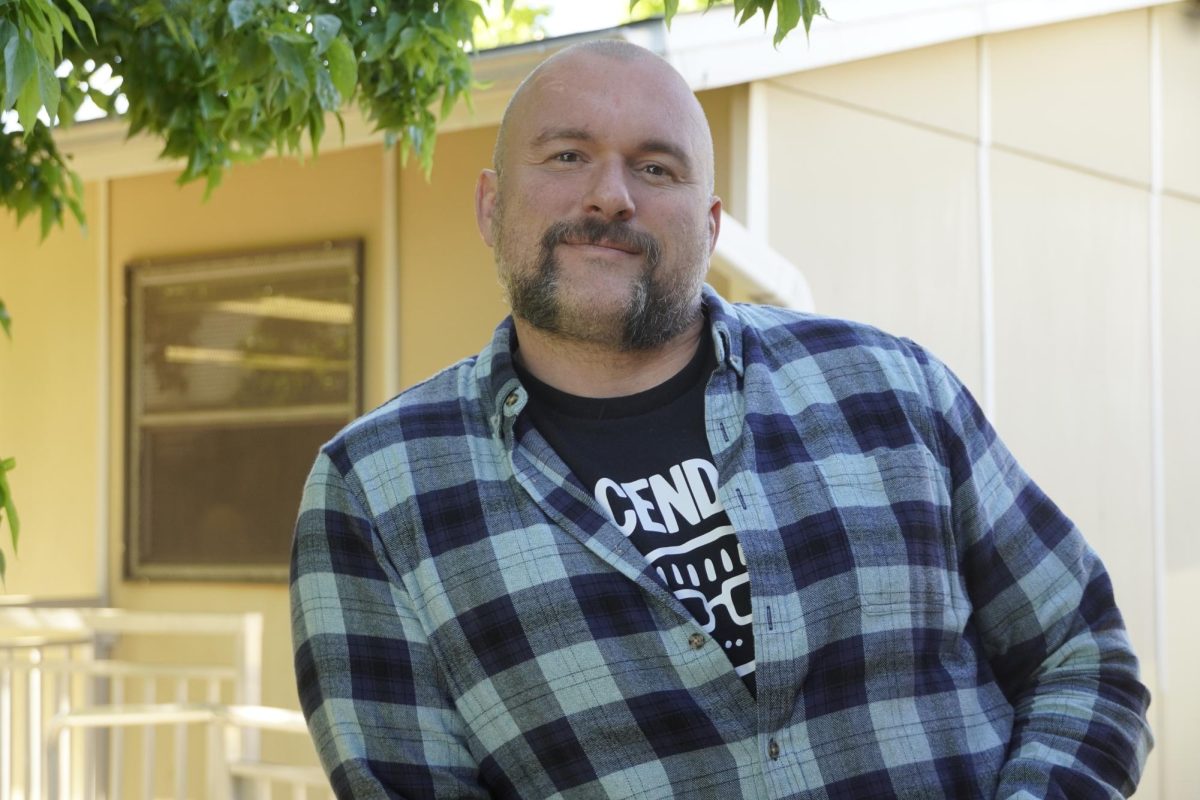
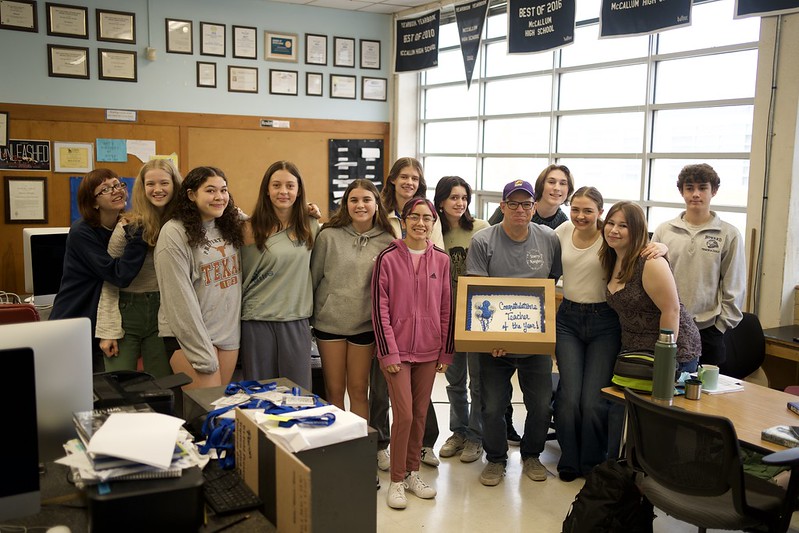
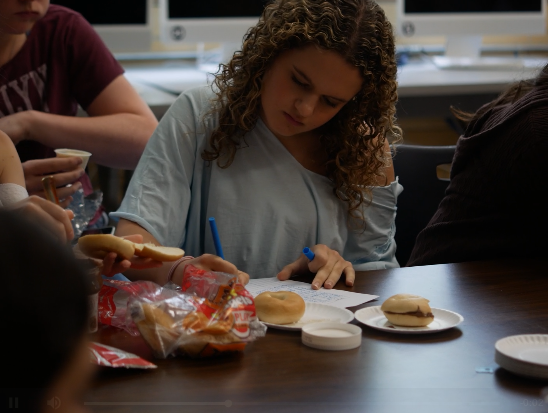
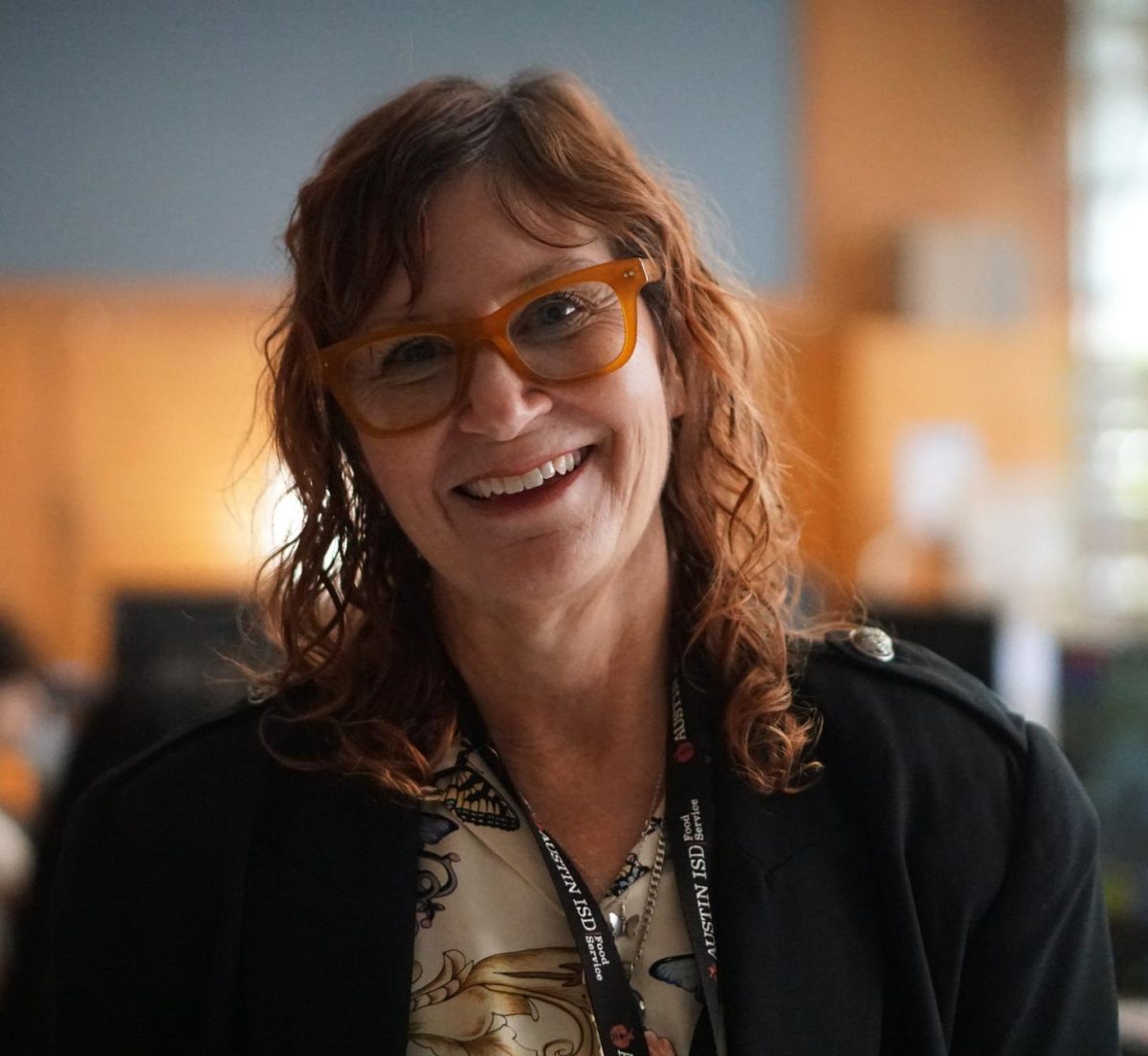
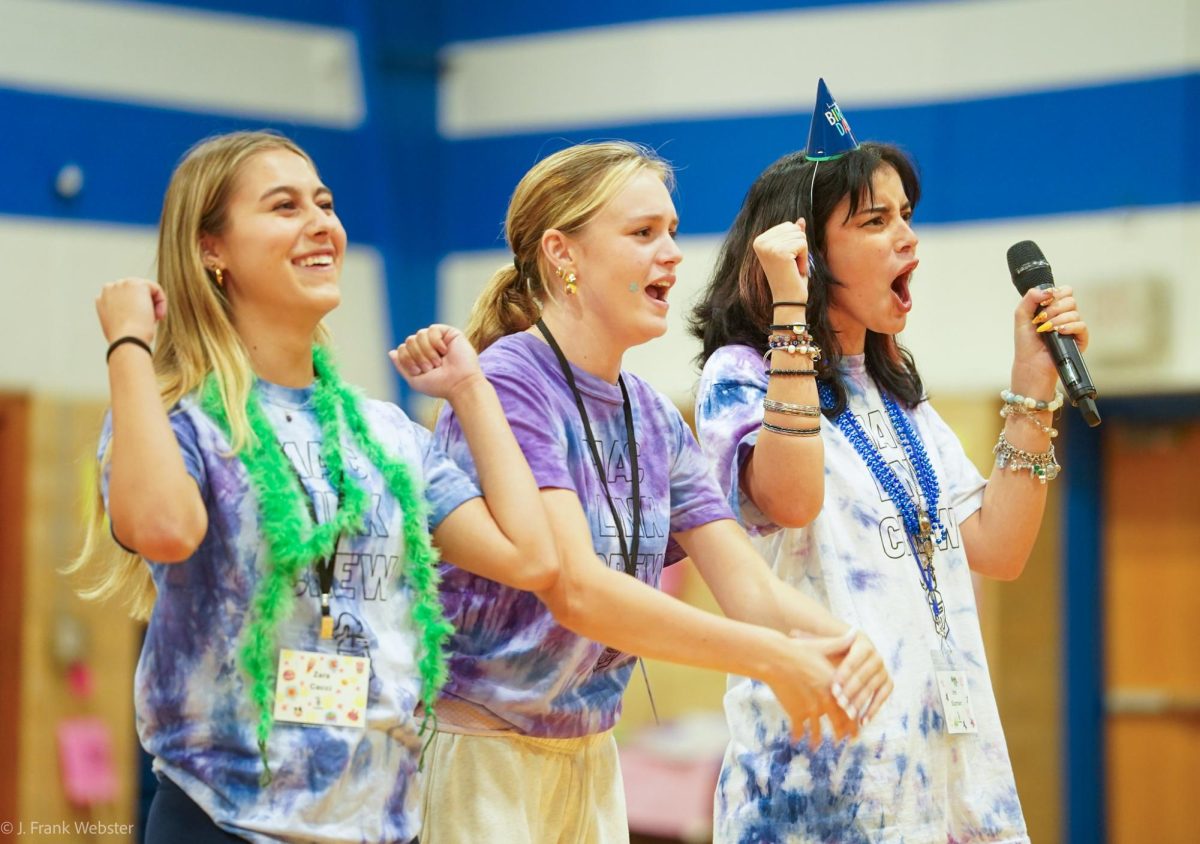
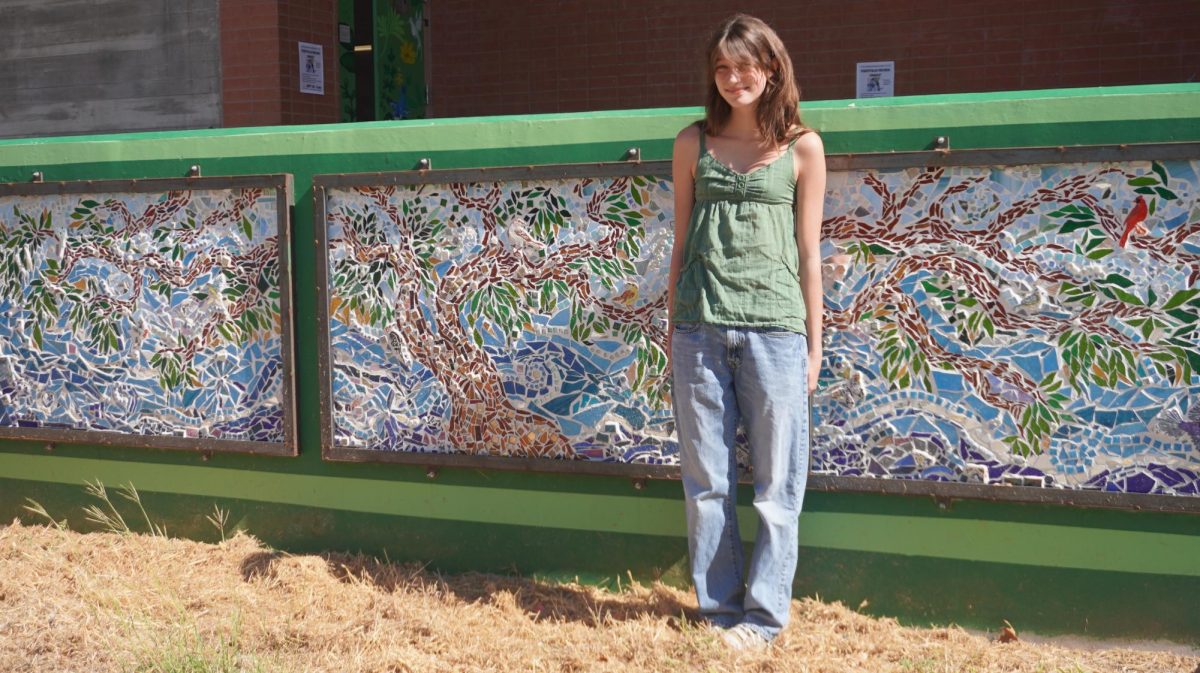

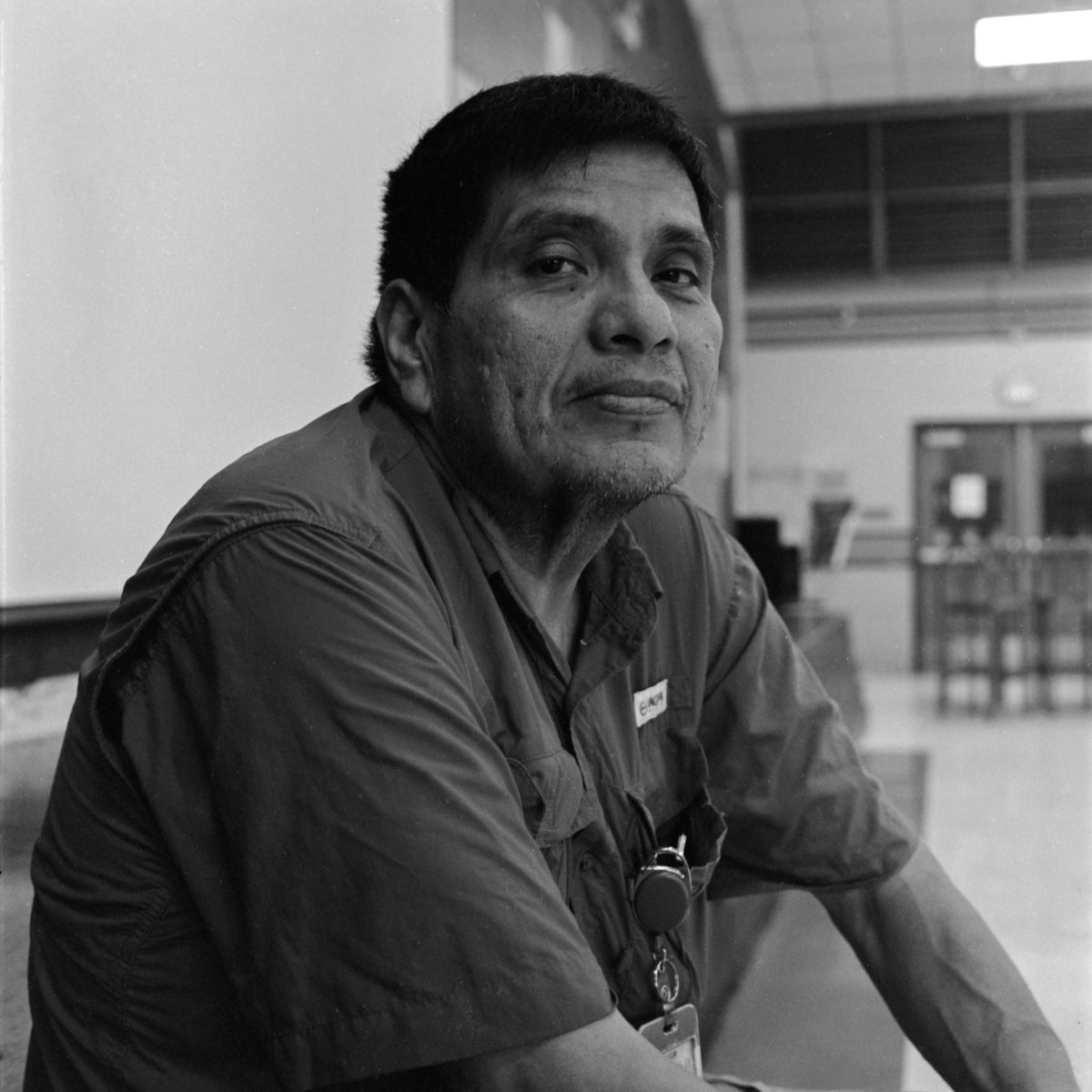
Zoe Hutchens • Apr 30, 2018 at 2:03 pm
I liked this article because it shows that all teachers are going through other stuff besides just their work. Sometimes as students its hard to see your teachers as people who have a lot on their plate because they are the ones giving you work, but they have so much to balance in their life.